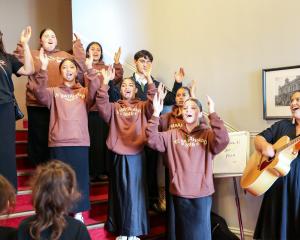A proposed fourfold increase of the roading portion of the rates bill for forestry properties has been labelled unfair by people with forestry interests in the Waitaki district.
Port Blakely health and safety and environment manager Zac Robinson called the proposed change to the Waitaki District Council’s draft revenue and financing policy 2018 "disappointing" and "ill-considered", in the company’s submission this week.
The company, one of the two largest forestry operators in the district, owns about 8000ha of plantation forest in the district.
And it had made an estimated $75,000 to $100,000 worth of voluntary contributions to the district, including a $50,000 contribution to a roading upgrade on Horse Range Rd, which had not been considered in the council’s draft policy.
The roughly 4000ha Shag forest would not be harvested for the next 20 years and the council’s "blanket" application of a targeted roading rate for forestry blocks "seems ‘untargeted’ and extremely unfair", he writes.
Council chief financial officer Paul Hope said the proposed change was expected to generate $120,000 a year and would not apply to those properties "like farms with a small woodlot".
Last month, Waitaki Mayor Gary Kircher defended adding to forestry companies’ rates bill. He said Horse Range Rd, near Palmerston, had been "smashed to bits" by a forestry operation and required $3 million in remedial works. While others in the district were complaining about the level of service on their rural roads, "resources get sucked to another area".
Mr Robinson said Mr Kircher’s comments "lacked a clear understanding of the issues" and did not take into account the proactive role the company made to benefit the district’s rural roading network.
Maraeweka Forests Ltd director Bob Linton said the policy "was not very clear". He asked whether it was "absolutely guaranteed" the roading rates collected from the forestry industry would be used to upgrade roads to forests. Further, he said "additional costs" of upgrading a road after a harvest that were due to "previous substandard roading maintenance" should not be drawn from a council reserve built up from the targeted rate. Noel Vallely, of Dunedin, who owns a forestry block of roughly 16ha in the district, said he believed the "almost un-metalled road" he expected to use when harvesting was also used by farm vehicles which he believed were likely to do more damage.
His rates bill over a 20-year period could increase from $2700 to more than $10,000.














